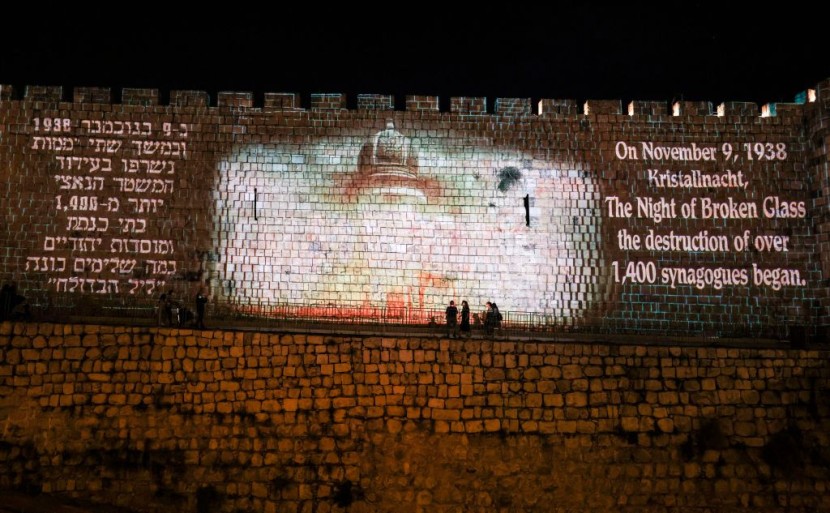On November 9, 1938, German Nazis participated in a pogrom which some historians and observers reckoned as the beginning of the Holocaust.
As the world marked the first month since Hamas launched its deadly attack in southern Israel, which killed around 1,400 civilians and took at least 200 others hostage, Jews, and synagogues across the world also noticed an eerie and frightful similarity in the levels of antisemitism spewed by anti-Israel individuals 85 years since the Kristallnacht, also known as the "November Pogroms" or "The Night of Broken Glass."
Jews on Edge Amid Kristallnacht Preparations
According to The Times of Israel, thousands of synagogues planned to participate in an annual Israel-based Kristallnacht initiative called "Light from the Synagogue," which invited congregations and Jewish organizations to keep their lights on all night to mark the Nazi pogrom.
However, some synagogues and Jewish communities have canceled plans to commemorate Kristallnacht this coming Thursday (November 9).
"When we first started to plan how to adapt this beautiful project to Brazil, we were aiming for an interreligious effort," Sao Paulo-based Holocaust educator Hana Nusbaum said. "However, due to the rise of antisemitism worldwide, we don't think the synagogues and other Jewish institutions would be comfortable with a physical demonstration of support that highlights their locations."
While there are no canceled Kristallnacht events in the US, organizers in Los Angeles and New York said that their events would have "bolstered" security measures.

Synagogues Afraid of Commemorating Kristallnacht
Marking this year's wartime commemoration, the iconic March of the Living program also released testimonies of Holocaust survivors who reflected on antisemitism following the Hamas massacres of October 7.
"I never thought in my life that something as terrible as now would happen again," Holocaust survivor Tirza HaLivni said. "I have to say honestly, all the lectures I give, and I give a lot, in Israel, in Germany, and wherever I can, but I think back 85 years ago to how horrible it was, and here we are, experiencing it again."
March of the Living (MOTL) is a program allowing Israeli and Diaspora Jewish teens to tour Holocaust sites in Poland and Israel.
Many of the survivors solicited by MOTL this year were uncomfortable allowing the organization to use their full names, according to a MOTL press release.
"[They] feared for their own safety, were initially hesitant to speak out, [or] worried that revealing their identities could place them in immediate danger," the statement said.
Meanwhile, "Light from the Synagogue" organizer Dalia Yohanan said she was deeply upset by emails she received, most of them saying they were forced to withhold their celebrations to just their congregations out of fear people might swarm and disrupt their commemorations.
"I nearly cried when I read how many synagogues are afraid to share their locations," Yohanan added. "We thought those days would never come back."
Jews Forced to Hide Articles of Faith
Outside Israel, Holocaust survivors and their families were now reluctant to wear Jewish symbols.
"I think twice before I wear my Star of David," Polish-born survivor Manya Wallenfels said. "It is a catastrophe what is happening today: not only Hamas but the antisemitism in the universities."
And sometimes, people were hurt in the process of condemning Hamas's attacks in southern Israel on October 7, just like the case of Paul Kessler, who was killed after he was hit by a megaphone on the head and slipped and fell, hitting his head on the ground.
There were also others whose memories of the Holocaust just came back after the Hamas attack.
"I still remember my mother's words when he was taken away by two policemen: 'What's going on, what are you doing with him, what has he done, where is he being taken to?'" W. Michael Blumenthal told German broadcaster DW. "Even as a 12-year-old, you can feel the fear of adults."








